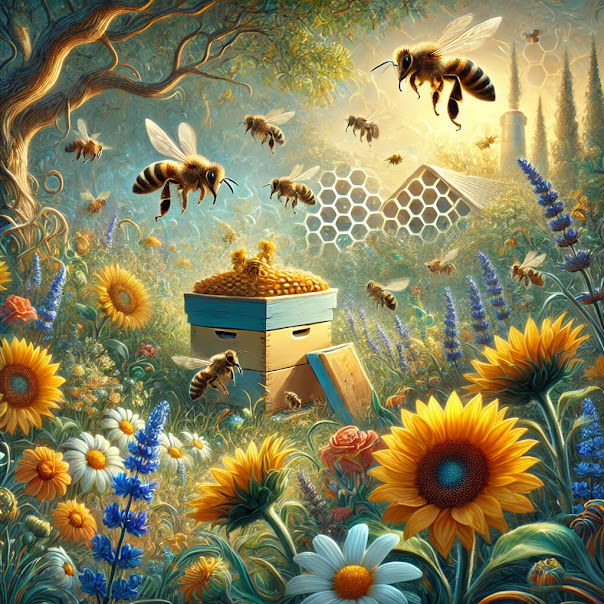Are Bees Still Suffering from Colony Collapse Disorder
- By Sentel
BOSTON - Remember when Colony Collapse Disorder (CCD) was the headline-grabbing mystery that had everyone buzzing with concern about the fate of our precious honeybees? The phenomenon, which saw entire colonies of bees vanishing without a trace, left the world wondering: What was happening to our buzzing buddies? The media spotlight may have dimmed, but did we ever get to the bottom of it?
The short answer? Yes, but with a twist.
What Exactly Was Colony Collapse Disorder?
"Colony Collapse Disorder mysteriously stopped around 2011," says Noah Wilson-Rich, the founder and CEO of Best Bees, a beekeeping service based in Boston. "The real kicker is, we still don’t know why it started or why it stopped. It was linked to new pesticides at the time, but honestly, it’s still a head-scratcher. Those bees simply vanished—no bodies, no clues. Nowadays, we see the evidence of bee deaths, but back then, it was like they just disappeared."
The origins of this bee apocalypse can be traced back to 1987, when an uninvited guest, the Varroa mite, hitchhiked its way into the U.S. and turned beekeeping on its head. These mites are the vampires of the bee world—they latch onto bees, suck their blood, weaken them, and spread diseases faster than a rumor at a high school reunion.
Wilson-Rich, whose company now operates in 23 locations, notes, "We need bees—they’re not just cute little pollinators; they’re vital for our food supply. But thanks to these mites and the lingering effects of pesticides, bees today just aren’t as robust as they used to be."
The New Normal: Bees are Back, But Still Vulnerable
Good news: the number of bees in the U.S. has rebounded to record levels. But before we break out the honey-infused champagne, it’s important to recognize that while CCD may be behind us, it left our bees more fragile than ever. According to Wilson-Rich, "More beehives die in America every year than survive. Last year, over half of the beehives didn’t make it."
So, what can you do if you’re not a beekeeper? You can still help out these essential workers by doing something as simple as planting a flower. Yes, it’s that easy. Your backyard could become a bee sanctuary, offering them the nourishment they need to stay healthy and keep buzzing.
"We really need to appreciate bees and not kill them or hurt them. Instead, let’s focus on how we can help them," Wilson-Rich emphasizes.
How You Can Help
It’s easy to feel helpless when faced with a problem like this, but the truth is, every little bit helps. Here are a few things you can do to support bee health:
Plant Bee-Friendly Flowers: Bees are always on the lookout for pollen-rich plants. Sunflowers, lavender, and daisies are a few favorites that could turn your garden into a buzzing paradise.
Avoid Pesticides: Many pesticides are harmful to bees. Opt for organic gardening methods or bee-friendly alternatives to keep your plants and our pollinators safe.
Support Local Beekeepers: Buy local honey and bee products. Not only is it delicious, but you’re also supporting the people who are on the front lines of protecting these important creatures.
Take Action:
Let’s get the conversation buzzing again! Have you noticed more bees in your garden this year? What steps are you taking to make your backyard a bee-friendly haven? Share your tips and stories in the comments below, and don’t forget to tag us on social media when you plant your bee-friendly garden! Together, we can ensure that the honeybee population continues to thrive.
Charmers, Cousins, and the Hive Family: Let's show some love to the bees and take action today! Plant those flowers, spread the word, and remember, every small action can make a big difference. After all, it’s the little things in life—like bees—that make the world go round. 🐝🌸 #SaveTheBees #BeeKind #PollinatorPower




Comments
Post a Comment